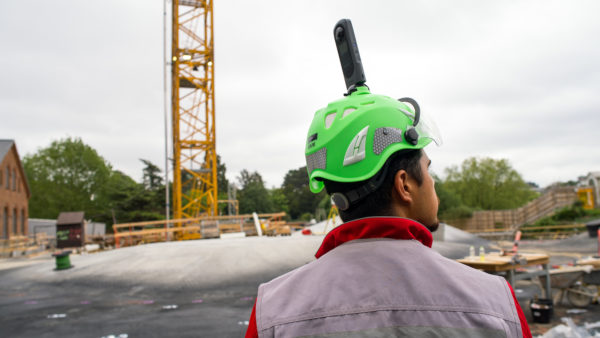The current perfect storm of the Grenfell Tower Inquiry, the decarbonisation agenda and the pandemic will likely increase adoption of artificial intelligence (AI) and automation, according to a new CITB report.
In what is believed to be one of the largest studies of its kind, CITB asked 1,500 construction employers, 97% being SMEs, for their views on the use of new technologies. Only 3% said they used AI, with fewer than 10% using automation or related tools like augmented reality, virtual reality or drones.
Barriers to greater adoption included a lack of high-speed internet connections in remote areas, limited data collection and sharing, high costs and rapidly changing technology.
Unsurprisingly, the larger the business, the more likely it is to have embraced new technologies: nearly two thirds of employers with 250 or more employees said they used at least five new technologies, although this fell to 31% for firms with 25-99 staff, and 15% for those with 10-24.
CITB senior research lead Martin Turner said: “As has become clear during the past year, new technologies can prove very effective in transforming ‘business as usual’. They can provide real benefits for construction employers, and the pandemic has in all probability helped spur on their use.
The CITB report, A Challenge And An Opportunity: Artificial Intelligence and Automation in the Construction Industry (https://www.citb.co.uk/documents/research/ai_and_automation_report.pdf), reinforces the future skills challenge.
It stated: “Training [will need] to be adapted in the present to prepare the new generation of workers for what the industry will look like over the next 10 to 20 years.
“Meanwhile, the current cohort of workers will need additional training to develop new digital skills, with our research suggesting that 50% of the workforce will need retraining in one form or another. Operatives will need to be trained in specific technologies. However, the fast-paced nature of technological change means that this will often need to be done on the job.”
Turner added: “During 2021 we’ll be developing plans for a digital skills framework to help establish more standardisation within training, and also to encourage increased take-up.
“Given the low take-up revealed by this research, it’s clear that smaller firms need more help in accessing the benefits of transformative technology like AI and automation.
“We will support them by funding pilot projects aimed at providing digital leadership training, with a focus on the needs of SMEs and the supply chain.”
Image: Kittichai Boonpong/Dreamstime.com
Comments
Comments are closed.












What this doesn’t cover is how AI & automation will reduce the number of jobs available especially to those who rely or are keen on traditional physical skills. With a large & increasing population and the inherent reduction in jobs that get replaced so how will these people make an honest living? Carpenters, bricklayers etc.
Also the focus seems to be on developing the skills of young entrants to the industry but what about the large number of professionals who have been made redundant since the the 90s and can’t afford the training to reenter the market? in 1990’s the Government provided some re-skilling courses @ training colleges and universities but this was all removed by the following recession around 2005 and replaced by very basic skills like typing. There are people with vast skill sets out there keen to be involved but face large barriers to re-entry.